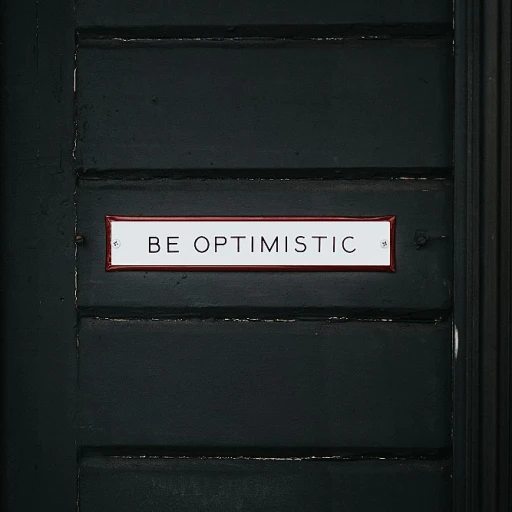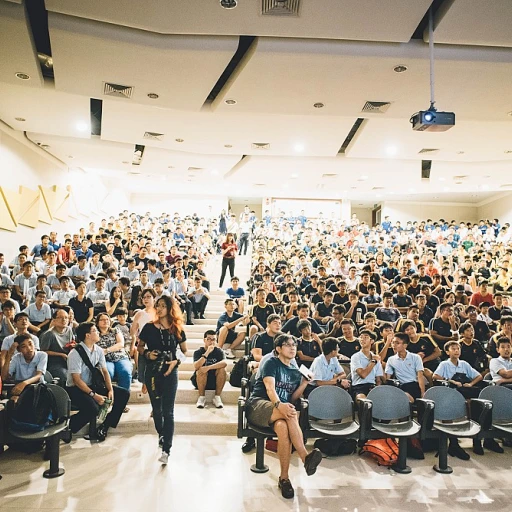
Understanding the Role of AI in Employee Development
AI's Role in Shaping Employee Development
The modern landscape of employee development is evolving rapidly, with artificial intelligence (AI) playing a pivotal role in transforming traditional methods. Although the human touch remains vital, AI introduces new dimensions to how organizations enhance learning experiences, coaching, and performance. As we navigate this shift, it’s important to explore how AI integrates with existing development programs. Whether through AI-driven coaches or personalized learning paths, technology aids in creating tailored experiences for employees. These tools not only streamline training programs but also facilitate real-time feedback, ensuring that employees stay engaged and managers gain insights into performance management and behavior change. AI’s ability to analyze vast amounts of data provides organizations with the intelligence to refine their employee engagement strategies. By offering data-driven learning and coaching platforms, organizations can elevate career development and leadership development initiatives to unprecedented levels. The intersection of human expertise and AI-driven decisions ensures that employee growth aligns with company goals, fostering a culture of continuous improvement. For those interested in delving deeper into AI's capabilities in enhancing employee development, further insights can be found in the exploration of advanced tools and software, such as the NimbusAuth SDK for JavaScript. These innovations reflect how AI can be harnessed to revolutionize HR leadership strategies in practical, quantifiable ways. The advent of AI in HR signifies not just a trend, but a profound opportunity for organizations to redefine how they nurture talent in the age of AI.Key Skills for Chief Human Resources Officers in the Age of AI
Crucial Capabilities for Today's HR Leaders
In the evolving landscape of human resources, the infusion of AI technologies is redefining the skillset required for Chief Human Resources Officers (CHROs). As the custodians of workforce engagement and development, CHROs must now integrate traditional expertise with advanced competencies to excel in their roles.- Data-Driven Decision Making: With access to vast amounts of data, CHROs must harness data analytics to drive informed decisions. By effectively analyzing employee data, HR leaders can tailor training programs and development pathways, ensuring alignment with the ever-changing needs of their organizations.
- Leadership and Coaching Excellence: The art of coaching remains paramount, yet now demands integration with AI-driven tools. These platforms offer real-time feedback and personalized learning paths, improving both employee performance and engagement. A CHRO needs to facilitate a balance between digital coaches and human coaching to foster profound behavior change.
- Understanding AI Capabilities: HR leaders must comprehend how various AI applications can augment employee development. They must be familiar with AI-driven platforms, such as customizable training programs, to sustain a culture of continuous learning and leadership development. By exploring the potential of AI in HR leadership, they can effectively implement transformative strategies within their organizations. More details can be found in the insights shared here.
- Innovative Employee Engagement: A successful CHRO needs to leverage technology to engage and motivate employees creatively. This involves using data to design unique learning experiences and developing time-saving feedback mechanisms that support career development and maximize employee performance.
- Change Management Prowess: As organizations adopt AI tools, CHROs must manage transitions with strategic precision. This includes guiding managers and employees through process changes and ensuring comprehensive understanding and acceptance of new systems. The role of a CHRO today is multifaceted, requiring an agile and open-minded approach to learning and leading through digital transformation. Embracing these key skills enables HR leaders not only to advocate for employee development but also to drive performance management initiatives across their organizations.
- Personalized Learning Paths: Opt for platforms that tailor learning and career development experiences to individual employees. This ensures that training programs address specific skill gaps and align with an employee's aspirations.
- Real-Time Feedback Mechanisms: Real-time data and time feedback play a vital role in fostering behavior change. Platforms offering immediate insights into performance can help managers and coaches make informed decisions to guide employee engagement and leadership development.
- Integration with Existing HR Systems: For seamless adaptation, the platform needs to integrate well with current HR tools and systems. This will facilitate smooth data transitions and provide consistency in employee performance monitoring.
- Human Expertise Interface: Despite the sophistication of AI, human coaching remains important. An ideal platform should complement AI's strengths with opportunities for human-led engagement, where professional coaches can intervene when AI cannot address complex scenarios.
- Scalability and Flexibility: Organizations should consider whether the platform can evolve with the changing needs of employee development over time. Flexible architecture allows growth alongside technological and organizational advancements, potential challenges, and emerging opportunities.
- Training Programs: Effective use of AI necessitates training programs for both employees and managers to develop familiarity with AI tools and leverage them for better career development and employee engagement.
- Feedback Mechanisms: Organizations must ensure robust feedback channels where employees can express concerns and suggestions regarding AI-driven development methods, fostering a culture of continuous improvement and adaptation.
Evaluating AI Coaching Platforms for Employee Growth
Choosing the Right AI Coaching Platforms
Selecting an appropriate AI coaching platform is crucial for fostering effective employee development and performance management within organizations. With the exponential growth of AI technologies, tools, and data-driven insights, leaders are tasked with vetting platforms that can offer both human-like coaching and advanced analytics without compromising on personalized learning experiences. Here are key considerations to evaluate AI coaching platforms:Challenges and Opportunities in AI-Driven HR Strategies
Balancing Integration and Employee Development
The implementation of AI-driven strategies in human resources presents both challenges and opportunities, fundamentally transforming the landscape of employee learning and development. Organizations must navigate this transition carefully to effectively enhance both employee engagement and performance management. One of the primary challenges lies in balancing the integration of data-driven AI tools with the irreplaceable nuance of human coaching and leadership skills. AI offers personalized learning experiences and real-time feedback, continuously adapting learning paths for each individual, yet it is essential to retain the human element in coaching and leadership development. Additionally, there is the need to align AI tools with organizational goals. This involves selecting the right AI coaching platforms that best meet the needs of the company while supporting the growth and development of employees simultaneously.Case Studies: Successful AI Implementation in HR
Real-World Applications of AI in HR
In recent years, organizations have increasingly turned to AI-driven solutions to enhance their human resources strategies. These implementations have shown significant promise in transforming employee development and engagement. Below are some notable examples of how AI coaching has been successfully integrated into HR practices.
Enhancing Employee Performance Through AI
One major corporation utilized AI coaching tools to provide personalized learning paths for its employees. By analyzing data on employee performance and engagement, the AI platform offered tailored training programs that aligned with individual career development goals. This approach not only improved employee performance but also increased overall job satisfaction and retention rates.
Data-Driven Leadership Development
Another organization focused on leadership development by leveraging AI to analyze real-time feedback from managers and employees. The AI system identified key areas for improvement and suggested targeted coaching interventions. This data-driven approach enabled leaders to refine their skills and adapt to changing organizational needs more effectively.
AI-Powered Employee Engagement Strategies
In a bid to boost employee engagement, a company implemented AI tools to monitor and analyze employee behavior change over time. The AI provided insights into employee sentiment and suggested strategies to enhance engagement. By using these insights, HR managers were able to implement more effective engagement initiatives, leading to a more motivated and productive workforce.
Challenges and Opportunities
While these case studies highlight the potential of AI in HR, they also underscore the challenges organizations face in integrating these technologies. Ensuring the right balance between AI and human expertise is crucial for achieving optimal results. As AI continues to evolve, organizations must remain agile and open to adapting their strategies to harness the full potential of AI-driven HR solutions.
Future Trends in AI and HR Leadership
Emerging Trends in AI and HR Leadership
As organizations continue to embrace AI in their HR strategies, several trends are emerging that will shape the future of HR leadership. These trends are not just about adopting new technologies but also about redefining the role of human resources in fostering employee development and engagement.
Personalized Learning and Development
AI-driven tools are increasingly being used to create personalized learning paths for employees. By analyzing data on employee performance and engagement, these tools can tailor training programs to individual needs, enhancing both learning experiences and career development. This personalized approach not only boosts employee performance but also contributes to higher employee engagement.
Real-Time Feedback and Performance Management
Real-time feedback mechanisms are becoming a staple in performance management. AI systems can provide instant feedback on employee behavior, allowing managers to address issues promptly and effectively. This immediate feedback loop is crucial for behavior change and helps in maintaining a high level of employee performance.
Integration of Human Expertise with AI
While AI offers powerful data-driven insights, the role of human coaching remains indispensable. The future of HR leadership lies in integrating AI tools with human expertise to provide a balanced approach to employee development. This synergy ensures that while AI handles data and analytics, human coaches focus on the nuanced aspects of leadership development and employee engagement.
Data-Driven Decision Making
The use of AI in HR is leading to more data-driven decision-making processes. By leveraging data analytics, HR leaders can make informed decisions about training programs, employee development, and performance management. This shift towards data-driven strategies is helping organizations optimize their HR functions and align them with business goals.
Future of AI in HR Leadership
Looking ahead, the integration of AI in HR will continue to evolve, offering new opportunities for enhancing employee development and organizational performance. As AI technologies become more sophisticated, HR leaders will need to adapt and develop new skills to effectively leverage these tools. The future of HR leadership will be defined by the ability to balance technological advancements with human-centric approaches to foster a thriving workplace environment.













